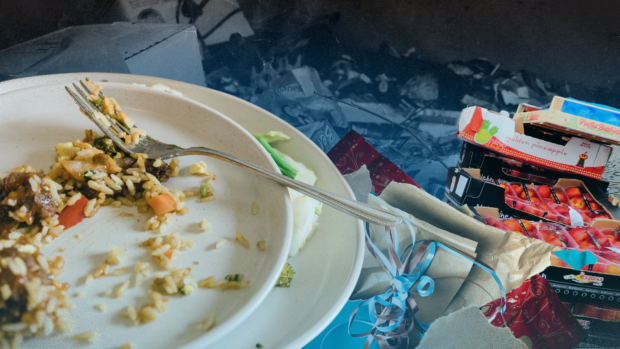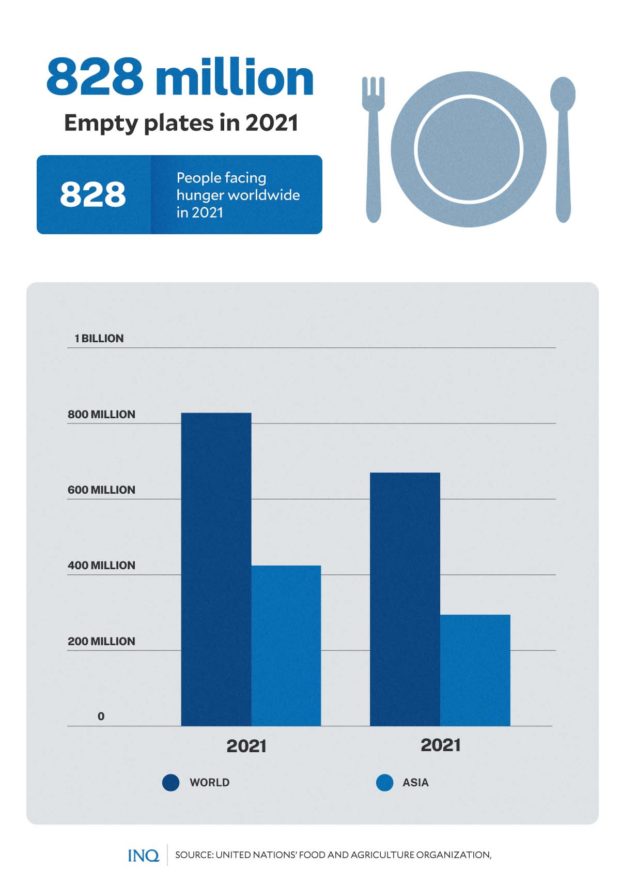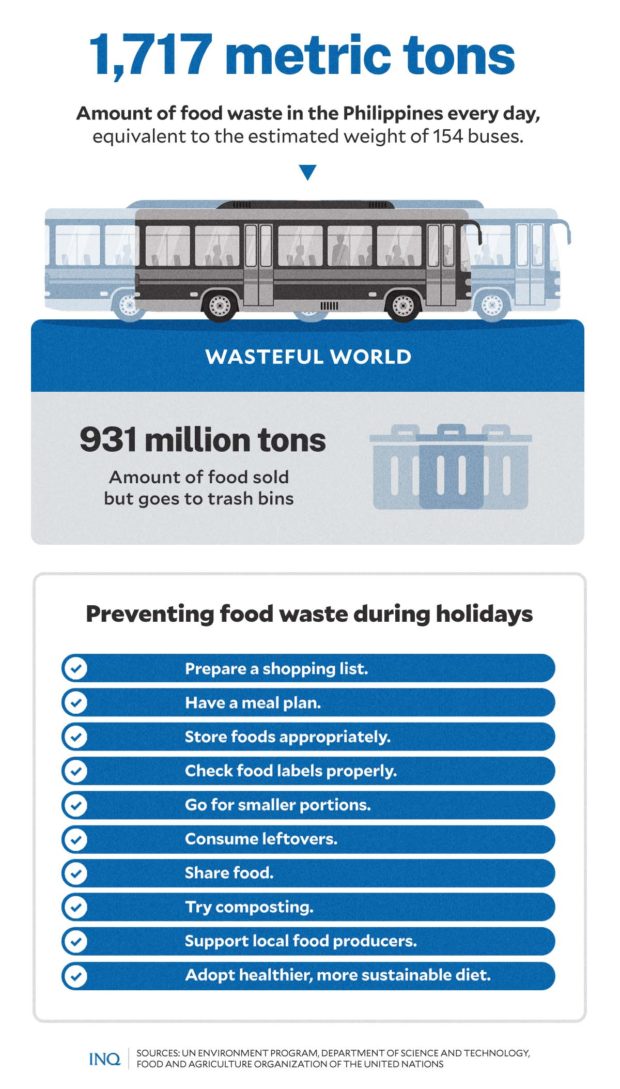Food waste: The not-so-jolly impact of holiday celebrations
MANILA, Philippines—In the Philippines, food is usually front and center during the holiday season. Families and friends get together and celebrate by sharing stories and hearty meals during noche buena (Christmas Eve meal) and media noche (New Year’s Eve meal).
Not all the food, however, goes to the digestive system.
The UN Environment Programme (UNEP) estimated last year that one-third—about 1.3 billion tons—of food produced in the world yearly “gets lost or wasted.”
It added that 931 million tons of food sold—17 percent of total food available in 2019—went into waste bins of households, retailers, and food establishments. These figures, unfortunately, rise during the holiday season.
READ: The malady of food waste: Millions starve as trash bins fill with leftovers
Normally, one can waste up to 40 percent of the food that he or she buys. However, according to the United Nations Development Program (UNDP), as people overindulge in big family meals and treats during the holidays, people’s food wastage increases by up to 25 percent.
“We end up wasting more food than what we buy,” said Simone Smit, head of exploration at UNDP.
Data from UK waste management company’s website—businesswaste.co.uk—showed that waste generated during Christmas celebrations goes up by 30 percent compared to those generated during the rest of the year.
The biggest culprit, according to the waste management company, is the food people consume during the holiday season. An estimated 66 percent of people admit to buying too much Christmas food, which eventually ends up in the bin and landfills.
Why does it matter?
The impact of food wastage during the holiday season, however, does not linger in those months alone. Its damage also harms food security, the climate, and even agri-food systems globally.
While people across the globe contribute to rising holiday food wastage, the Food and Agriculture Organization (FAO) found that there were 828 million empty plates in the world—which represents 828 million people stricken by hunger last year.
In the Philippines, FAO noted that from 2019 to 2021, 5.3 million Filipinos were severely food insecure—either running out of food or going an entire day without eating during the year.
At least 48 million more experienced moderate or severe food insecurity. These have either had insufficient money or resources for a healthy diet, uncertainty about the ability to obtain food, or probably skipped meals or ran out of food occasionally.
FAO also reported that in 2020, barely half of the people globally—around 3.1 billion people—were able to afford a healthy diet. This was an increase from the 40.9 percent and 41.5 percent of people across the world without access to a healthy diet.
In the Philippines, 68.6 percent of the country’s estimated population in 2020—around 75.2 million Filipinos—were not able to afford a healthy diet.
READ: World Food Day 2022: Rising costs keep millions in PH away from healthy diets
Food waste also fuels environmental concerns through greenhouse gas (GHG) emissions and generates an additional burden on landfill sites.
“Approximately 8 to 10 percent of GHGs are associated with food that is not consumed,” FAO said.
“Food waste also represents a waste of all resources—energy, labour, land and water—that have been invested throughout the food supply chain as well as the costs of the food, and the time and energy used in preparing and serving it to guests,” FAO explained.
“The additional food waste generated during the holidays only adds to this current tragedy considering the increasing number of people who suffer from hunger and food security,” it added.
Reduce food waste
- To avoid adding more food waste during the holiday season this year, FAO, UNEP, and the World Wildlife Fund (WWF) urged people to follow these tips:
- Prepare a shopping list to prevent purchasing unnecessary duplicates.
- Have a meal plan and make a realistic estimation of the portion sizes and the amount of food needed to prepare.
- Store foods appropriately to maximize the shelf life of food and leftovers.
- Understand food labels and check for the “use-by” dates.
- Go for smaller portions to avoid on-plate food waste.
- Consume leftovers.
- Surplus food that is still safe for food consumption can be shared and donated to local food assistance charities.
- Try composting.
- Support local food producers.
- Adopt a healthier, more sustainable diet.
TSB


